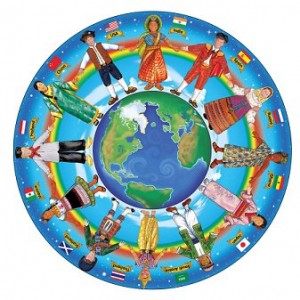Freiling, Nicholas. “Minimum Wage: Good Intentions, Bad Policy.” Values & Capitalism. valuesandcapitalism.com, Aug. 2013. Web. 11 Aug. 2015.
Nicholas Freiling is a blogger who argues that while there is public support for raising the minimum wage, this does not mean that it would be good for the American economy. To get his argument across, Freiling compares the labor of working class people to food being sold in a market. He states that “If the price of milk is capped at $1 per gallon, grocers will soon run out, as customers buy more than they need while prices are low.” Also, he states that “If the price of bread is not allowed to fall below $10 per loaf, grocers won’t be able to sell their stock as consumers will wait until prices drop to buy bread.” Freiling believes that these same ideas apply to the minimum wage and workers. He tells that since the minimum wage is $7.25 now there are more workers that want to work but yet there are not enough companies that can employ them. He concludes his analogy by comparing grocery store shoppers to businesses when he says “There is only so much money to go around, and—like the grocery store’s customers—businesses cannot spend more on wages than they earn in revenue.” He concludes his article by stating that while raising the minimum wage might sound like a good thing, it might not be in the United States’ best interest to do so.
Freiling’s argument against minimum wage is not very reasonable, especially towards the working class. For starters, he uses a false analogy by comparing people’s labor to products at a grocery store. His argument is wrong here because he is dehumanizing workers by comparing them to products that can be bought. His false analogy invokes a sort of sense of human trafficking or prostitution as if a company can walk into a store and decide that it wants to buy a human’s labor. Human trafficking and prostitution are illegal and while Freiling might not have been explicitly talking about the sale of humans, he was talking about the sale of their labor which are two things that are hard to distinguish from each other. Freiling is wrongly making workers seem like products that only serve for the benefit of companies. He completely ignores the fact that workers are human beings who labor to earn a fair living in order to survive.
Freiling takes his false analogy further by making companies appear like humans when he describes companies as being customers of a grocery store. A company is not one single living and breathing human made out of flesh that goes to the market. A company is made up of many people and different sectors that make it function. And while yes, some of the people that do make up the company have gone to the market, they do not shop in the name of their corporation. It is not legal for a single person to buy another person, so it is not right for a company to buy a worker and their labor as if the worker were a product at a grocery store. Freiling’s usage of analogies only weaken his argument and his own image by trivializing the fact that some people work hard and yet they still get paid a low minimum wage.



 Because of the stereotypes I’ve seen of my people in society, I’ve become more aware of the stereotypes that all races and cultures have associated with them. Pretty much every nationality in the world has a negative misconception about them. This led me to become more interested in discovering the truth about world cultures and become a culture enthusiast. This is why I want to study international relations and global studies because in order for two countries to work diplomatically, they have to understand each other culturally. I’ve never really experienced a stereotype because I’m interested in world culture but I have gotten judged for wanting to study international relations. Sometimes people don’t really understand why I would want to study other world regions or they believe that I don’t value my own culture enough. But that is not the case. The fact that I love my culture so much makes me want to reach out and discover the richness of other people’s heritage.
Because of the stereotypes I’ve seen of my people in society, I’ve become more aware of the stereotypes that all races and cultures have associated with them. Pretty much every nationality in the world has a negative misconception about them. This led me to become more interested in discovering the truth about world cultures and become a culture enthusiast. This is why I want to study international relations and global studies because in order for two countries to work diplomatically, they have to understand each other culturally. I’ve never really experienced a stereotype because I’m interested in world culture but I have gotten judged for wanting to study international relations. Sometimes people don’t really understand why I would want to study other world regions or they believe that I don’t value my own culture enough. But that is not the case. The fact that I love my culture so much makes me want to reach out and discover the richness of other people’s heritage.